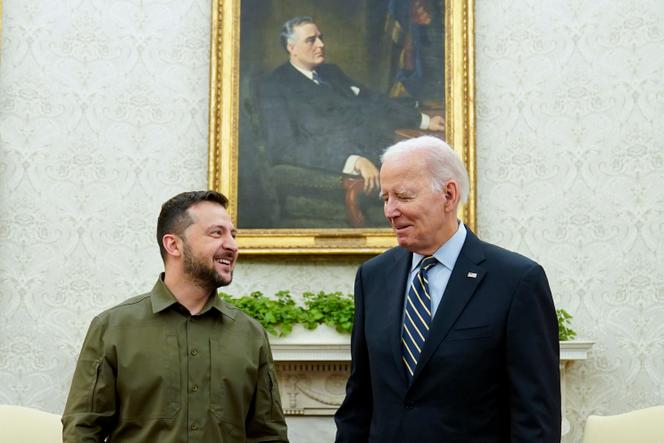


"Next week, the first US Abrams tanks will be delivered in Ukraine," US President Joe Biden said Thursday, September 21, at the White House, alongside his Ukrainian counterpart Volodymyr Zelensky, who is on his second visit to the United States since Russia invaded his country in February 2022.
Biden also said he had "approved the next tranche of security assistance for Ukraine," which the Pentagon later valued at $325 million. It includes air defense missiles, ammunition for HIMARS precision rocket launchers, anti-tank weapons, and artillery rounds.
But the package does not feature the long-range ATACMS missiles that Kyiv has repeatedly requested. It does include 155mm rounds that contain cluster munitions, which Washington first agreed to provide to Ukraine in July despite concerns over the long-term risk posed to civilians by bomblets that fail to explode.
The United States said it has received assurances from Kyiv that it would minimize the risk the weapons pose to civilians, including by not using the munitions in populated areas.
Washington had promised the 31 Abrams tanks to Kyiv at the start of the year, part of more than $43 billion in security assistance pledged by the United States over the past 18 months. The tanks will be paired with 120mm armor-piercing depleted uranium rounds.
Such munitions are controversial due to their association with health problems, such as cancer and birth defects, in areas where they were used in past conflicts, although they have not been definitively proven to have caused them.
The decision to provide Abrams tanks to Ukraine represented a U-turn as American defense officials had repeatedly said they were ill-suited for Kyiv's forces due to their complexity.
The Ukrainian President won pledges of unstinting support and air defense weapons from President Joe Biden on Thursday, but he warned that Russia could still defeat Kyiv if Republican lawmakers cut US military aid.
The hard-right faction dominating the Republican Party is increasingly adamant that the aid spigot should be turned off, with Congress having already approved $100 billion in aid to date, including $43 billion in weaponry.
On Capitol Hill, Zelensky got a notably discreet welcome from the Republican Speaker of the House of Representatives, Kevin McCarthy, who is having trouble keeping a lid on internal party squabbling over US spending in Ukraine. Some Republicans say the money could be better spent on US border security, while there are also concerns about the pace of Kyiv's counteroffensive and that corruption in Ukraine means the money will go to waste.
The doubts are being fuelled by messaging from former president and likely 2024 candidate Donald Trump, who has opposed more funding and frequently expressed admiration for Russia's Vladimir Putin.
It's a trend that has also reached parts of the generally more pro-Ukraine Republicans in the Senate, where Senator Roger Marshall said Congress should not be "sending another blank check to Zelensky" and six senators issued a joint letter declaring "enough is enough."
"I'm counting on the good judgment of the United States Congress. There's no alternative," Joe Biden said when a reporter asked whether Congress would pass the funding.
